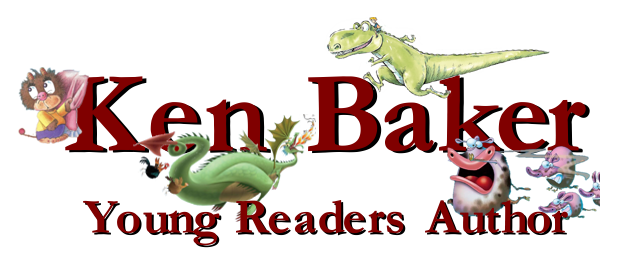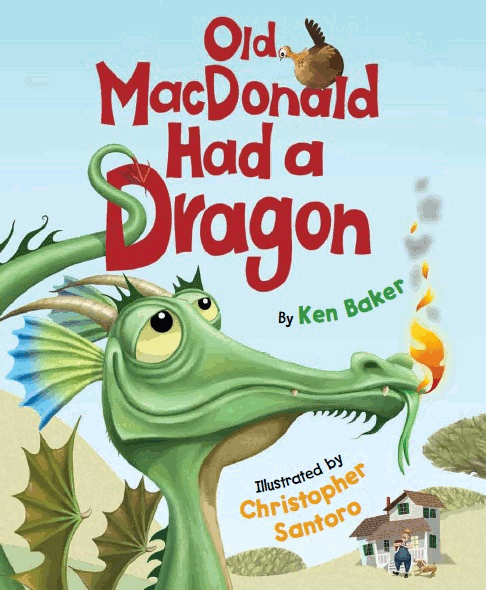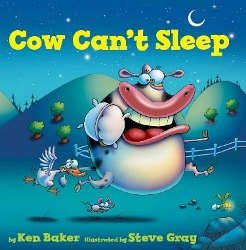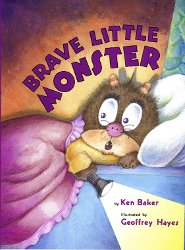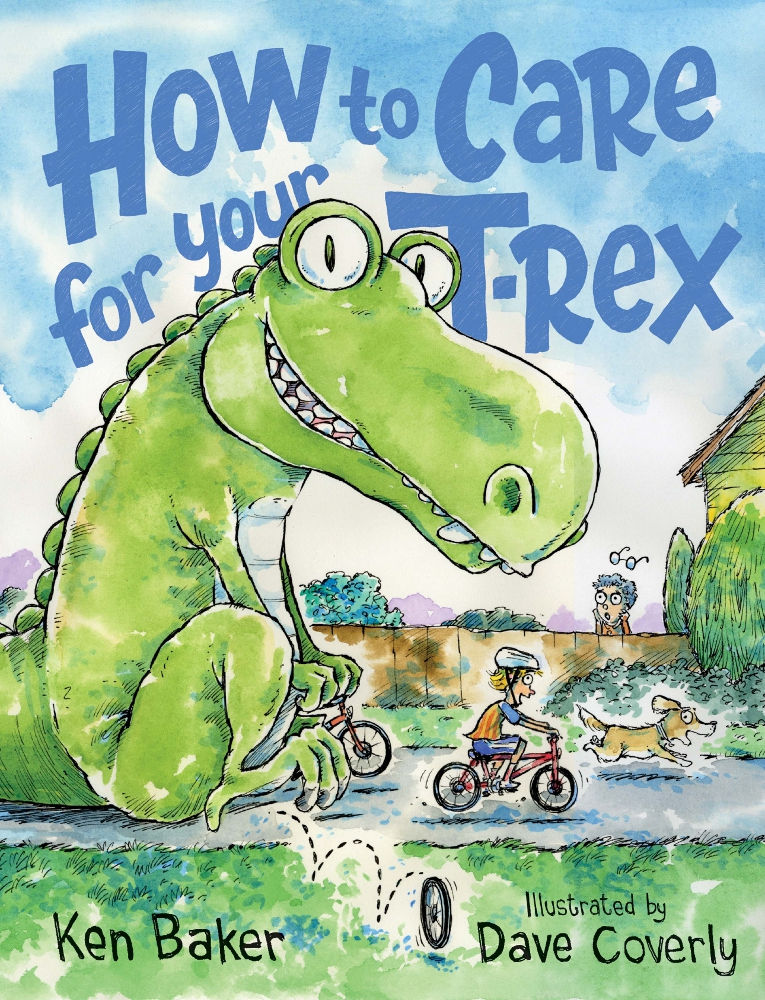May 2025 newsletter by Ken Baker, author for young readers
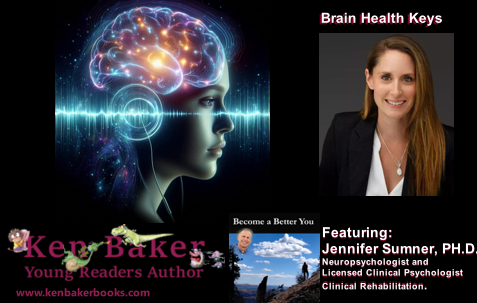
As an author and writer by profession, staying sharp with a healthy brain is critical. Unfortunately, about two years ago I was diagnosed with mild cognitive impairment (MCI). In other words, my brain wasn't acting as sharp as it use to. It was a scary time. I went to multiple neurologists and an integrative health provider. I went to a neurology clinic that specializes in neurological disorders. Working with them and following their guidance, a year later my diagnosis of MCI went away. My brain is now sharper and I returned to a much less scarier place in my life.
Approximately 12 to 18 percent of U.S. citizens 60 or older have MCI.1 Depending on what studies you look at, 20 to 50 percent of people with MCI end up getting Alzheimer's Disease. That's why MCI can be scary. But it doesn't haven't to be. You can be proactive in trying to prevent or turn the tables on MCI.

Presenting!!!
I recently spoke with Jennifer Sumner, PH.D., Director of Neuropsychology at Kaizen Brain Center, who helps people suffering from a wide variety of neurological disorders, including traumatic brain injuries, dementia, MCI, and more. Here are some highlights from our conversation.
Me: Tell our audience what you do and, and give a little bit of background about yourself.
Jenn: I am a neuropsychologist and work at a neurology clinic with several neurologists. We focus on individuals with traumatic brain injuries or those experiencing memory disorders that you might find in a dementia process.
Me: So how do you help your patients work through the kind of issues that they're dealing with.
Jenn: Whether it's traumatic brain injury or someone experiencing memory loss or other neurological disorders, I would do a comprehensive neuropsychological evaluation that entails a lengthy interview where I go through birth history to academic functioning, career functioning, social life, medical history, and psychological history to see if there's anything throughout their life that may have contributed to some type of brain change. And then I move into a testing procedure and testing batteries for a comprehensive evaluation.
With cognitive training, we can come up with strategies to compensate for areas of weakness. Some of those strategies might be external things like using alarm clocks or note taking, but really I try to work on internal strategies. Are there ways to problem solve more efficiently? Are there tricks to remember information that they have learned? Are there more efficient ways to learn?
Often I work with people once a week and then have them apply those strategies at home. It's very helpful if they have a support system so we can work in tandem with maybe a spouse, a child, or parent so the patient can practice with and be cued by those people.
And then once people are able to apply those compensatory strategies, they're able to function in a more meaningful way. Strategy training doesn't cure memory impairment or other cognitive issues, but it helps make those weaknesses less apparent. But there are many things people can do that they're not aware of that can slow the decline of memory or, um, create a healthier lifestyle that can improve functioning.
Me: What are the, some of the things that you advise people to do to slow down the brain decline or to improve their brain health?
Jenn: What I tell people is a lot of things that improve heart health are actually really good for the brain as well.
One of the first things is exercise. You want to move your body. The American Medical Association recommends at minimum 150 minutes of aerobic exercise per week. When we're working with an older population or someone with maybe preclinical dementia, like a mild cognitive impairment, we definitely want to add strength training, balance and flexibility to any aerobic type exercise.
Not only do they. Work on different physical aspects of the body, but they directly work on different areas of the brain. And so you want to incorporate all three of those. And it can be more motivating for people if they realize it's not just helping. Their heart or their strength or weight loss, which motivates a lot of people.
Nutrition is another big one. There are foods that we can eat, which are called antioxidants so they can reduce inflammation in the brain. When the brain isn't nourished and doesn't receive the proper nutrients, it affects brain flow. It affects how neurons are stimulated. One of the most recommended diets is the Mediterranean diet.
Sleep is huge too. When we sleep, cerebral spinal fluid washes out the brain and removes amyloid. That's a protein in the brain that is associated with Alzheimer's type dementia. So, we want to encourage not only quantity sleep, but quality sleep as we age,
Another really big one is stress reduction. All of us experience acute stress, right? Something happens, and that can be motivating, right? We need to take care of ourselves. Maybe there's a big work project or a family situation, and that's normal, and everybody experiences that. What's concerning is chronic stress.
So, if you're living at a heightened level of stress for a prolonged period of time. That leaves a chemical called cortisol at high levels in the brain. Cortisol at high levels over a long period of time can be toxic, especially to an area of the brain called the hippocampus, which is largely responsible for memory. And so using stress reduction tools is really important. Some people meditate or they practice mindfulness. Some people do yoga or go for walk, looking out at the sunset, whatever that might be.
Something that we found in research over the last decade that's really important is socialization. When we isolate ourselves, it's linked to decreased cognitive functioning. When we socialize, it's kind of like exercise for the brain. It requires problem solving, language skills, attention, memory for what's going on, and that is helping those synaptic connections.
The last area of what we call the pillars of brain health is novel stimulation. As we age, we tend to stop learning and challenging our brains, and that's the last thing we want to do. So, engage in things that are new and challenging. The caveat is as you're learning new things, you don't want them to be overly frustrating. If you're starting to get angry with what you're learning, it's not helpful.
So, you might watch a YouTube video and learn to sketch an apple. Maybe explore a new town you've never been to. Some people are extreme, and they want to learn a new instrument or a new language. It can be as simple as learning a new board game or a new card game. You want to really expose yourself to something new.
So in terms of brain health, focus on exercise, nutrition, sleep, stress reduction, socialization, and novel stimulation, those things have been shown to either prolong the onset of a disease, slow the disease, or even prevent it.
The above has been edited for length. To see and hear the rest of the interview and get even more insights into brain health, watch the full interview at kenbakerbooks.com/expert_JennSumner.html
To reach Dr. Jennifer Sumner at her clinic or for brain health coaching, you can email her at jsumner@kaizenbraincenter.com.
Book business and life ‐
I thought I would share a little good news. For the past few months, the Kindle edition of my picture book Cow Can't Sleep has been in the top ten Amazon's bestsellers list for Children's Books on Farm Life and Baby & Toddler Bedtime & Dreaming Books.
In addition, for a number of weeks Cow Can't Sleep has been the #1 Amazon bestseller for Children's Books on Farm Life. To top it off, for several months the Kindle version of my picture book Old MacDonald had a Dragon has also been in the top ten Amazon bestsellers list for Baby & Toddler Nursery Rhyme Books and Children's Books on Farm Life.

 Heart image by Ken Baker
Heart image by Ken Baker
What I love
Missed April's newsletter? Check it out!
 Thank You image by Ken Baker
Thank You image by Ken Baker
Sign up for my newsletter to stay up-to-date on my books and what I'm up to.
Copyright 2001-2025 by Ken Baker
Heaven's Warrior cover by Ken Baker
Old MacDonald had a Dragon pictures by Christopher Santoro
Brave Little Monster pictures by Geoffrey Hayes
Cow Can't Sleep pictures by Steve Gray
How to Care for your T-Rex pictures by Dave Coverly
